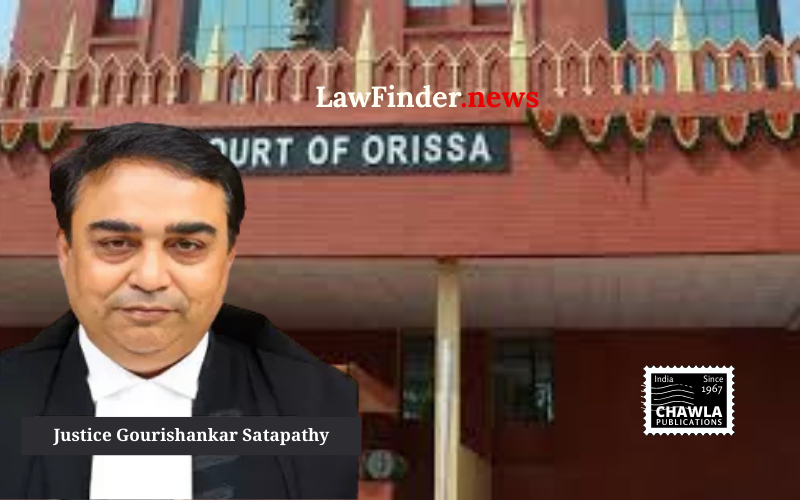Landmark judgment reinforces maintenance rights under Hindu Adoptions and Maintenance Act, 1956
In a significant ruling, the Orissa High Court has upheld the Family Court's decision to grant maintenance to an unmarried major daughter and wife, despite the daughter having attained majority. The judgment, delivered by Justice G. Satapathy, emphasizes the rights of unmarried major daughters under Section 20(3) of the Hindu Adoptions and Maintenance Act, 1956 , which allows them to claim maintenance from their fathers if they are unable to maintain themselves.
The case, G. Debendra Rao v. G. Puspa Prabha Rao, revolved around a petition filed by the wife and daughter of the petitioner, G. Debendra Rao, seeking maintenance under Section 125 of the Criminal Procedure Code, 1973. The Family Court had granted Rs.5,000 per month to each of the petitioners, prompting the petitioner to challenge the order.
Justice Satapathy examined the provisions of Section 125 of CrPC, which restricts maintenance for children until they attain majority, and Section 20(3) of HAMA, which recognizes the right of an unmarried major daughter to claim maintenance. The court clarified that while Section 125 does not expressly provide for maintenance to an unmarried major daughter, Section 20(3) of HAMA does, provided she is unable to maintain herself from her own earnings or property.
The judgment also addressed the petitioner’s contention that his wife was well-qualified and earning, thus disqualifying her from receiving maintenance. However, the court emphasized that professional qualification does not disqualify a wife from claiming maintenance unless there is concrete evidence of sufficient income or intentional avoidance of work. The maintenance amount must reflect the husband's standard of living and current market costs.
Moreover, the court acknowledged the jurisdiction of Family Courts to decide applications under both laws to prevent multiplicity of proceedings. It highlighted that the maintenance laws serve a social welfare objective to prevent destitution and vagrancy.
The judgment cited precedents such as Abhilasha v. Prakash, AIR 2020 SC 4355, and Jagdish Jugtawat v. Manju Lata, (2002) 5 SCC 422, reinforcing the legal stance that an unmarried major daughter is entitled to maintenance under HAMA even after attaining majority.
The ruling is a significant affirmation of the rights of women and children under Indian law, ensuring that their needs are met regardless of their age or professional status. The judgment has been hailed as a progressive step towards safeguarding the welfare of unmarried daughters and wives who are unable to maintain themselves.
Bottom Line:
Maintenance under Section 125 of CrPC and Section 20(3) of the Hindu Adoptions and Maintenance Act, 1956 – Unmarried major daughters are entitled to maintenance under HAMA even after attaining majority, provided they are unable to maintain themselves. Family Court can exercise jurisdiction under both laws to avoid multiplicity of proceedings.
Statutory provision(s): Section 125 of CrPC, Section 20(3) of Hindu Adoptions and Maintenance Act, 1956, Section 144 of Bharatiya Nagarika Surakhshya Sanhita, 2023
G. Debendra Rao v. G. Puspa Prabha Rao, (Orissa) : Law Finder Doc Id # 2781884




